Intel Core i9-9980XE CPU Review: Still Too Expensive
Why you can trust Tom's Hardware
Conclusion
Despite its place at the top of Intel's high-end desktop portfolio, Core i9-9980XE is faced with tougher competition than its predecessor. Aside from a tweaked 14nm manufacturing process and solder-based thermal interface material, there's little else to differentiate this Core i9 flagship from the one that came before. As a result, Intel has a hard time scrapping with AMD's fastest Ryzen Threadripper models.
Don't get us wrong: the Core i9-9980XE is an agile chip. Intel made definite improvements to its Turbo Boost frequencies, which facilitate higher frame rates in games, along with better benchmark results across our application suite. The generational gains are fairly mild, though:
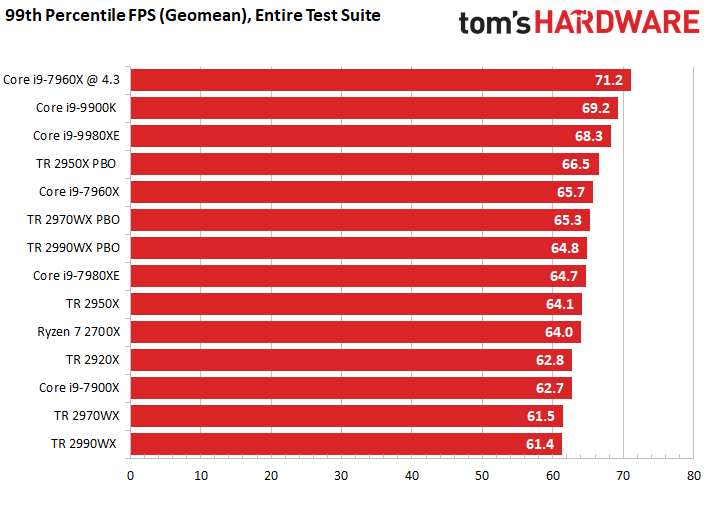
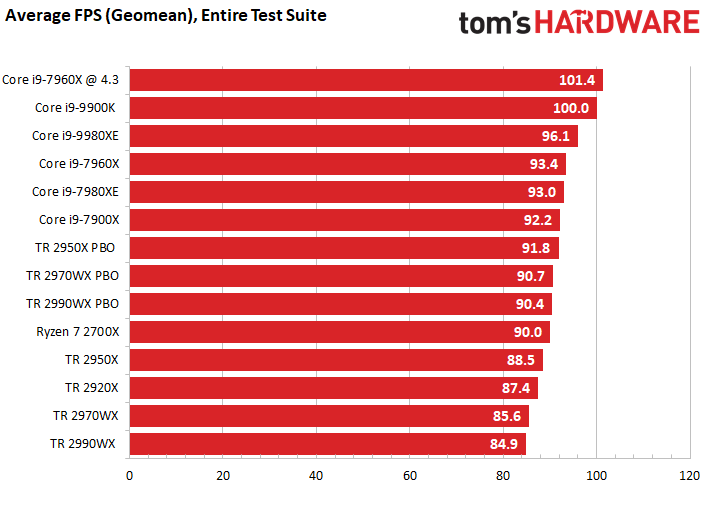
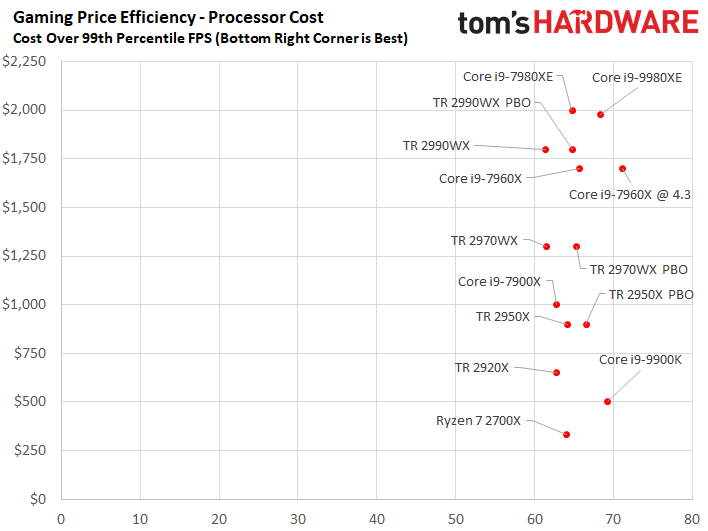
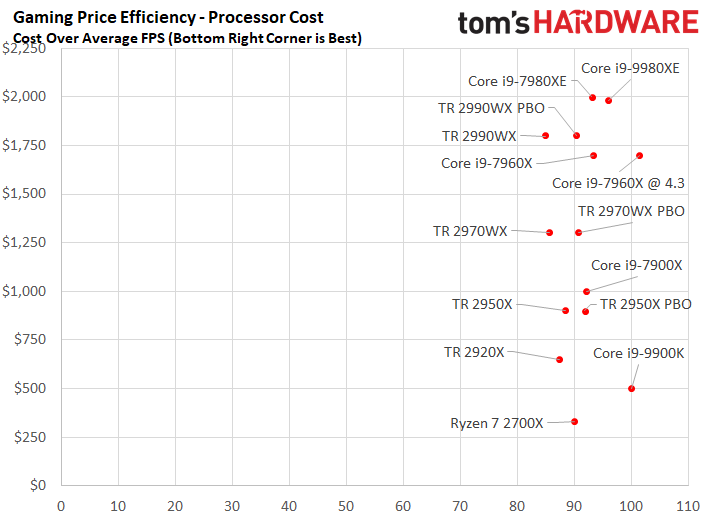
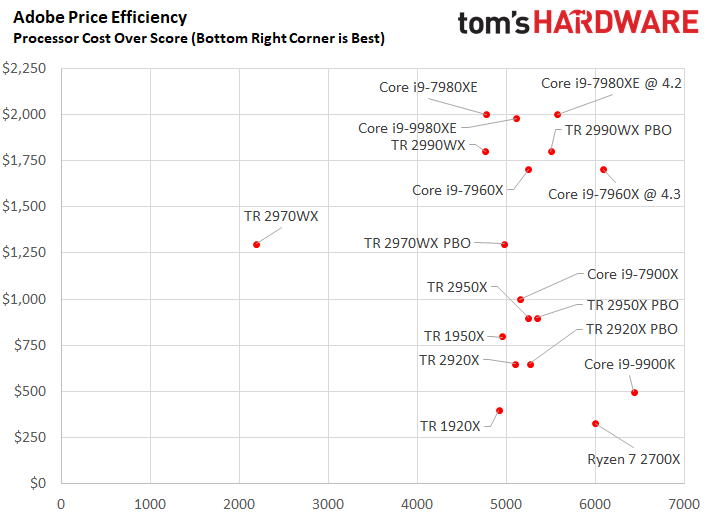
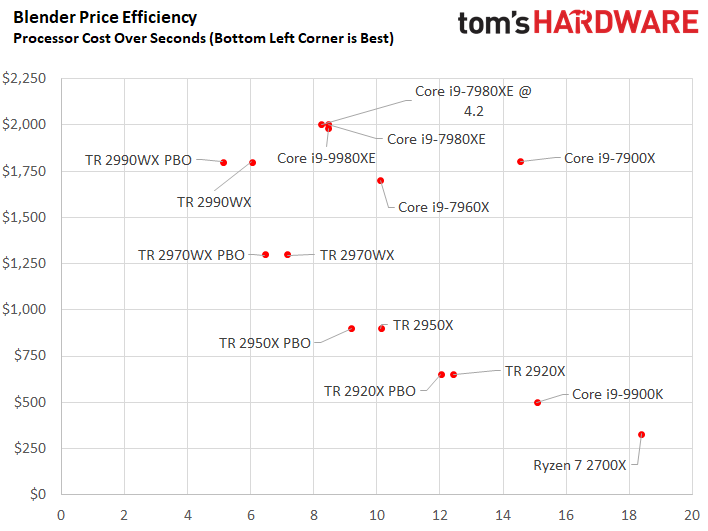
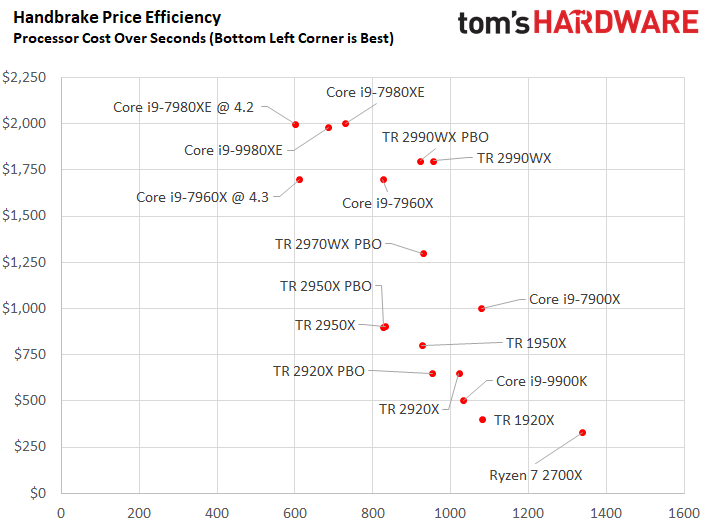
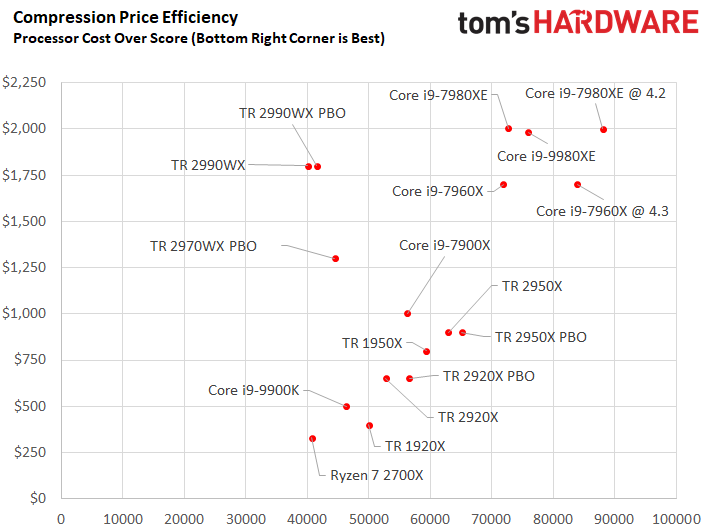
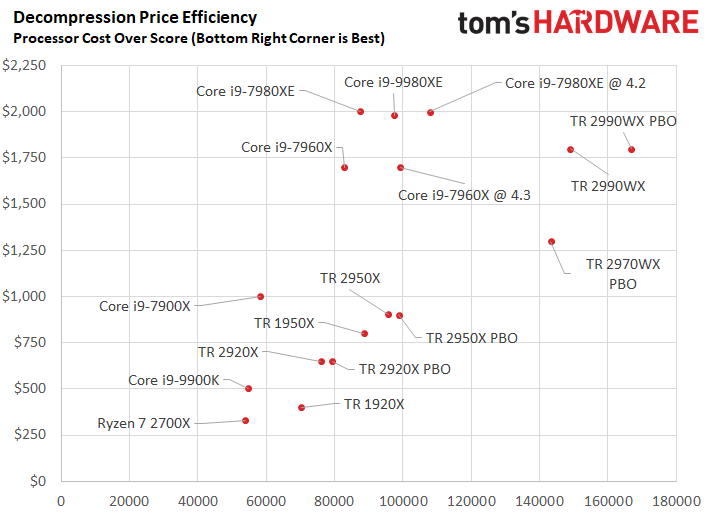
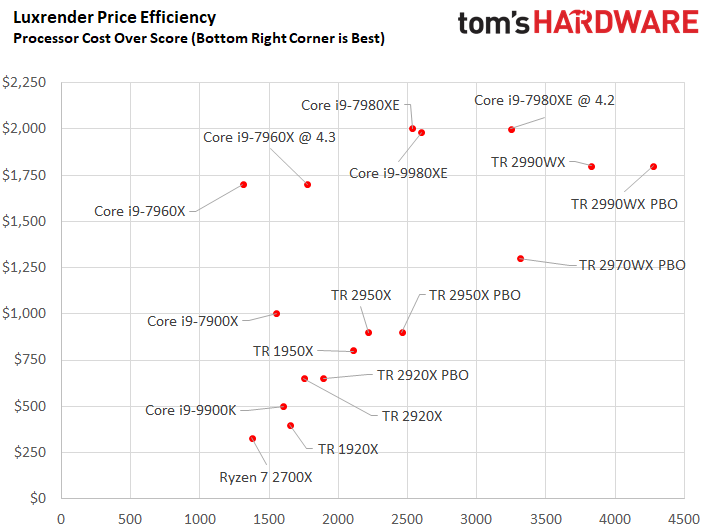
All told, the Core i9-9980XE only provided a 3.3 percent speed-up compared to the -7980XE in the games we test. AMD’s Ryzen Threadripper chips aren’t as fast in those same titles, but the 2950X, specifically, will attract plenty of attention at its price point because it's such an all-around performer. As you shift to QHD resolution and 4K resolutions, it's more than capable of complementing fast graphics cards.
Core i9-9980XE was also impressive in our application benchmarks. It just didn't win in a definitive manner. And a lot of threaded metrics still go AMD's way thanks to the SMT-enabled 32-core behemoth in its arsenal. Both companies force you to make certain compromises due to architectural decisions that enable the big core counts we're seeing. So, at the end of the day, we have to weigh good against the bad.
AMD leaves ECC memory support enabled, if that's important to you. Intel disables it in an effort to protect the Xeon family. Intel leaves all of its PCIe connectivity turned on across the refreshed Skylake-X chips, but AMD already does the same thing. Solder-based thermal interface material was a good choice on Intel's part this time around. However, we consider it less of a luxury and more of a necessity. Meanwhile, Ryzen Threadripper 2950X costs half as much as the Core i9-9980XE and serves up competitive performance in a great many workloads. We think that makes it the obvious value choice for high-end desktop enthusiasts who play games, stream video, create content, and crunch code.
If you're not ready to sink thousands of dollars into a HEDT CPU, compatible motherboard, premium power supply, and water-cooling loop, consider a Core i9-9900K instead. It'd give you a taste of the high-end desktop life using a mainstream platform. The Core i9-9900K isn’t going to win any value awards, but it's an attractive option for well-heeled enthusiasts looking for the fastest gaming platform out there.
While we aren’t particularly excited about the Core i9-9980XE's iterative improvements, more aggressive Turbo Boost bins, larger caches, and full access to the PCI Express controller make downstream models more interesting than their previous-gen equivalents. The Core i9-9980XE itself is a powerful piece of hardware for heavy computing. There's a lot to like if you really do need high-end accommodations. We're simply turned off by Intel's unwillingness to budge on pricing versus the competition.
Get Tom's Hardware's best news and in-depth reviews, straight to your inbox.
MORE: Best CPUs
MORE: Intel & AMD Processor Hierarchy
MORE: All CPUs Content

Paul Alcorn is the Editor-in-Chief for Tom's Hardware US. He also writes news and reviews on CPUs, storage, and enterprise hardware.
-
lperreault21 so double the price per core with less than half the cores as the AMD equivalent, all within spitting distance in terms of performance, for a significantly more money, and no upgrade path on the socket (most likely) and a 4/5 ... wtf tomsReply -
rs.anantmishra AMD's Ryzen Threadripper chips land quite a ways down our charts. With that said, we did test in AMD's recommended Game Mode.Reply
Does this turn off many of the TR's cores? If yes, then these benchmarks are no good right? -
rs.anantmishra Also, why the hell this dude has included gaming benchmarks? This guy himself says that these are not gaming CPU's and then goes ahead and makes 3 of the 5 benchmark pages about gaming!!!!Reply
That's just super weird man! Are you sure what you're talking about??? -
velocityg4 I'm curious as to why Adobe Premiere was not included in the Adobe tests? Premiere is one of the few Adobe programs which benefits from heavy multi-core performance. Photoshop, Illustrator and After Effects are still mostly focused on one to a few cores.Reply
-
pct8750 Hi, Paul!Reply
Did Intel officially announce Skylake-X Refresh be manufactured on 14++ node?
9980XE Stepping is the same as 7980XE.
Stepping is 4, there is no change. -
Kaz_2_ Biased whole tome article dedicate to intel. This should be rated 2/5 like linus tech has saidReply